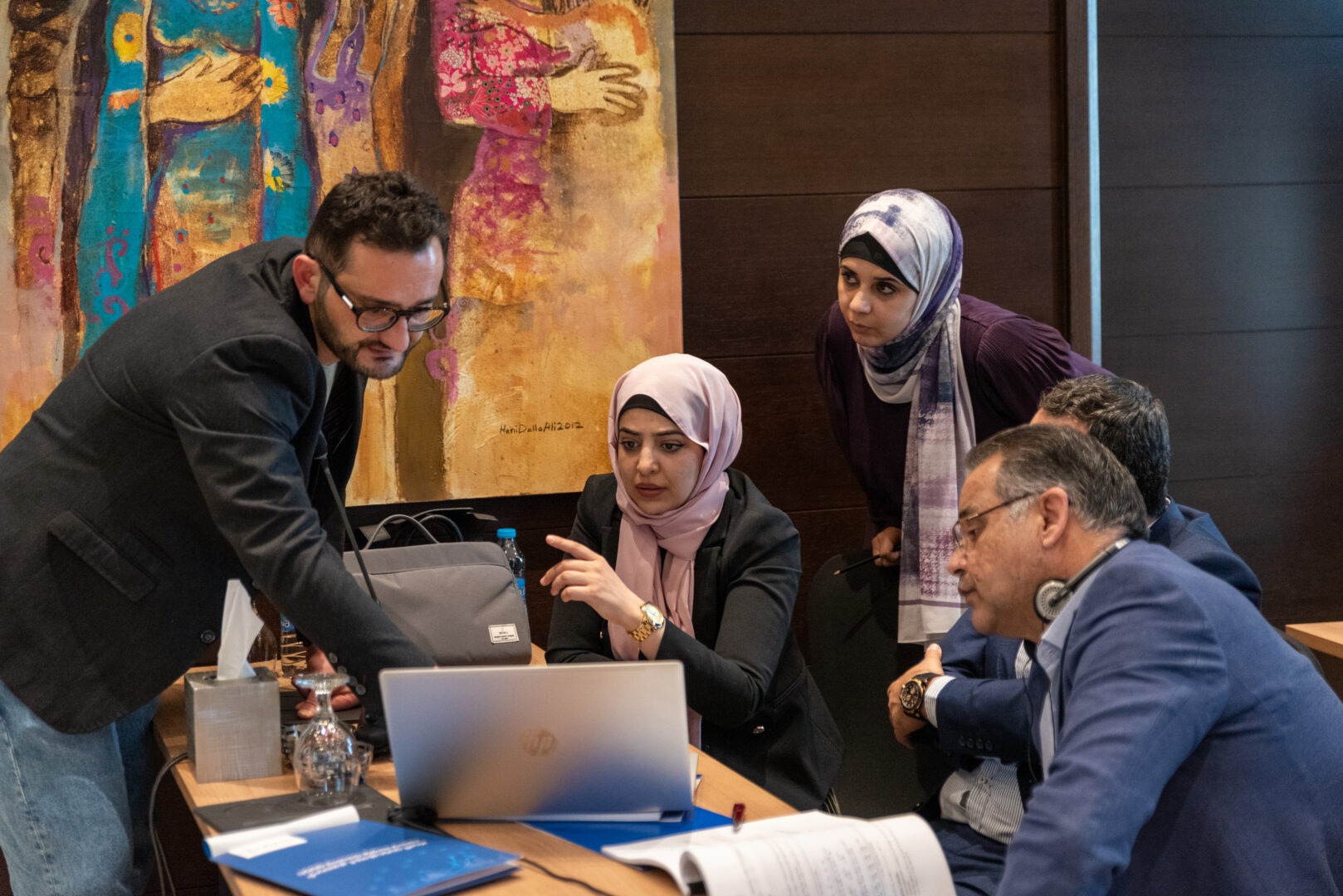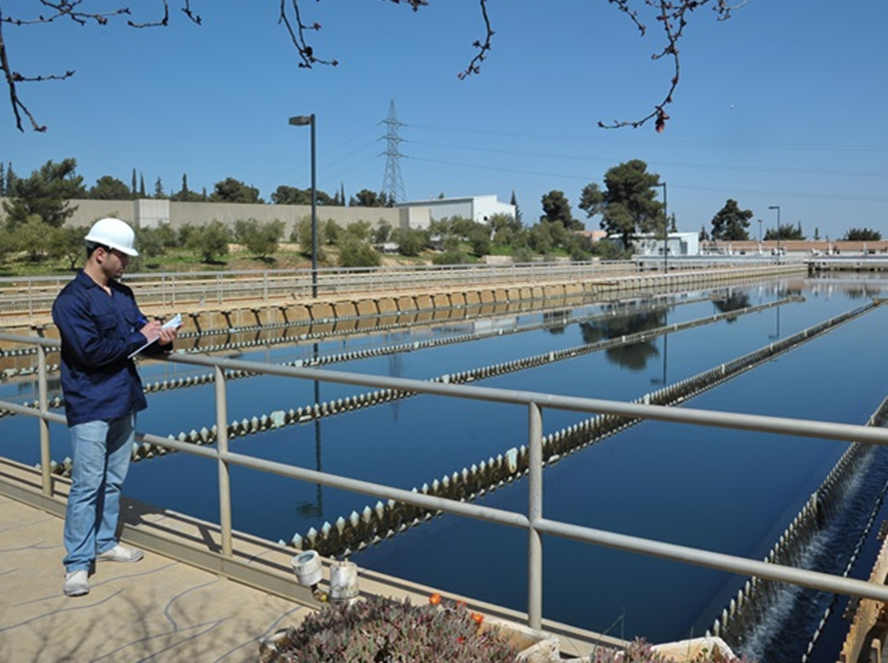The Government of Jordan’s Economic Modernization Vision (EMV) sets an ambitious sustainable development agenda to secure a better future for Jordanians through two pillars: 1) accelerating sustainable and inclusive economic growth and 2) improving the quality of life of all Jordanians. We are supporting locally-led development in Jordan by working with the public and private sectors to identify challenges and co-design solutions to meet the needs of local communities and stimulate economic growth in the country.
Long-Term Planning Requires Cross-Sectoral Alignment and Collaboration
Jordan’s vision requires a whole-of-government approach – engaging numerous stakeholders and ministries across all levels of the government – to address cross-cutting challenges. To operationalize the vision, the USAID Economic Reform Activity (ERA) works with the Government of Jordan to harmonize policies and regulations of different ministries towards the shared goals of the EMV.

ERA provided technical assistance to Jordan’s Ministry of Planning and International Coordination (MoPIC) to create the National Policies Directorate, an institution designed to facilitate short and long-term policy planning and reduce administrative overlap. The Directorate enables Jordan to analyze, formulate, and monitor the implementation of national level policies, in different sectors. To prioritize the 514 economic reforms outlined in the EMV, ERA worked with the Directorate to develop a prioritization methodology that used Economic Impact Analyses to select high-priority economic reforms. MoPIC’s prioritization methodology will enable the Government of Jordan to create implementation roadmaps that prioritize reforms with the greatest impact on economic growth long after ERA’s completion.
Stakeholder Coordination Facilitates Investment
Jordan’s water scarcity – one of the highest in the world – threatens livelihoods, business productivity, and economic growth. Through the USAID Water Governance Activity (WGA), we worked with the Ministry of Water and Irrigation (MWI) to revise Jordan’s National Water Strategy (2023-2040) and align it with sector policies and local challenges. WGA facilitated the Government of Jordan’s collaboration with stakeholders including different ministries , utility service providers, and international donors by creating a Capital Investment Plan and Coordination Framework. This framework will govern future water and wastewater infrastructure investment projects and ensure cost recovery for the water sector . The framework also encourages international investment in line with Jordan’s Economic Modernization Vision while equipping the government to manage Jordan’s scarce water resources for a sustainable future.
The same stakeholders will be engaged throughout to operationalize the Capital Investment Plan and help mobilize capital to strengthen water infrastructure and combat losses from non-revenue water in Jordan, which refers to water loss resulting from systemic inefficiencies, leakage, faulty meters, or theft from illegal use.
Chemonics has also worked to facilitate broader private sector investment in Jordan. ERA assisted the Government of Jordan in drafting, revising, and implementing its new Investment Environment Law. The law took effect on January 3, 2023 and clarifies and aligns regulations to provide clear information and guidelines to both investors and regulators. The government’s financial forecasting has shown that barring adverse geopolitical or legal changes, the law would contribute to attracting more than $15.5 billion in in Jordan. For example, foreign investment is key to develop the Disi Water Conveyance Project, one of the country’s greatest water infrastructure needs designed to transport water from the South to the North, to meet growing demand in the Amman governate where most of Jordan’s population lives.
Formalizing Sectors to Drive Sustainability
In Amman, over 3,500 tons of waste is generated daily but only 10% of that waste is being recycled. The USAID Recycling in Jordan Activity (JRA), is working to formalize an informal network of waste pickers to transform a largely informal recycling service network into a competitive industry. In coordination with the Greater Amman Municipality (GAM), the Jordan Environmental Society, and the Ministry of the Environment, JRA helped design and launch a waste picker training that certified 1,500 waste pickers including waste pickers with disabilities and women. GAM adopted the waste picker training as a primary requirement for licensing waste pickers and continuing efforts to formalize the market. The training course has a multiplier effect: in addition to improving their knowledge and skills by becoming certified, waste pickers are now eligible for social and legal protections that can help them protect their rights and improve their economic opportunities by expanding their participation in the recycling value chain. These efforts under the JRA, which respond to Jordan’s EMV’s sustainability strategy, demonstrates the value of designing solutions that fit the local system and address local priorities that styme growth.
“Over half of Jordan’s drinking water supplies are lost through a combination of illegal use and connections, vandalism, and leakage. Non-Revenue Water is the single biggest operational challenge the sector faces.”
Jordan National Water Strategy (2023 – 2040)
Through our network of active projects in Jordan we support the Government of Jordan’s Economic Modernization Vision and other national level policies by fostering cross-sectoral alignment, engaging stakeholders to mobilize investments, and institutionalizing reforms so they are sustainable beyond the life of the program. Collaborating with local partners to implement locally-led solutions, we’re successfully advancing this vision and boosting sustainable growth and wellbeing for Jordanians. Donors and implementing partners should continue fostering strong partnerships with local communities and organizations and strengthening governance structures to facilitate donor contributions so that they are managed and implemented through nascent Government of Jordan structures, including the National Policies Directorate and the Capital Investment Plan Framework. Through our work, we must continue to identify local needs, align our work with local priorities, and strengthen the capacity of local actors to lead sustainable change in Jordan.
Banner Image Caption: A panoramic view of Amman with a Jordanian flag raised in the middle.




